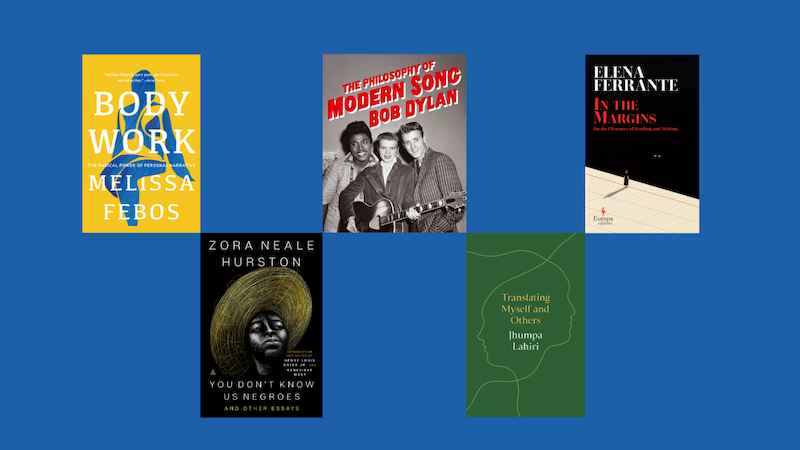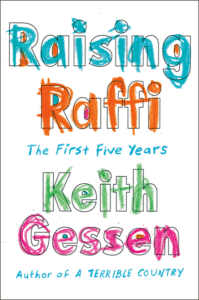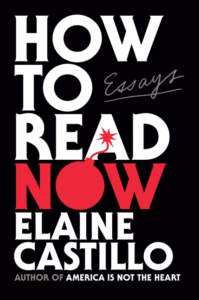
We’ve come to the end of another bountiful literary year, and for all of us review rabbits here at Book Marks, that can mean only one thing: basic math, and lots of it.
Yes, using reviews drawn from more than 150 publications, over the next two weeks we’ll be calculating and revealing the most critically-acclaimed books of 2022, in the categories of (deep breath): Fiction; Nonfiction; Memoir and Biography; Sci-Fi, Fantasy, and Horror; Short Story Collections; Essay Collections; Poetry; Mystery and Crime; Graphic Literature; and Literature in Translation.
Today’s installment: Essay Collections.
*
1. In the Margins: On the Pleasures of Reading and Writing by Elena Ferrante
(Europa)
12 Rave • 12 Positive • 4 Mixed
“The lucid, well-formed essays that make up In the Margins are written in an equally captivating voice … Although a slim collection, there is more than enough meat here to nourish both the common reader and the Ferrante aficionado … Every essay here is a blend of deep thought, rigorous analysis and graceful prose. We occasionally get the odd glimpse of the author…but mainly the focus is on the nuts and bolts of writing and Ferrante’s practice of her craft. The essays are at their most rewarding when Ferrante discusses the origins of her books, in particular the celebrated Neapolitan Novels, and the multifaceted heroines that power them … These essays might not bring us any closer to finding out who Ferrante really is. Instead, though, they provide valuable insight into how she developed as a writer and how she works her magic.”
–Malcolm Forbes (The Star Tribune)
2. Translating Myself and Others by Jhumpa Lahiri
(Princeton University Press)
8 Rave • 14 Positive • 1 Mixed
“Lahiri mixes detailed explorations of craft with broader reflections on her own artistic life, as well as the ‘essential aesthetic and political mission’ of translation. She is excellent in all three modes—so excellent, in fact, that I, a translator myself, could barely read this book. I kept putting it aside, compelled by Lahiri’s writing to go sit at my desk and translate … One of Lahiri’s great gifts as an essayist is her ability to braid multiple ways of thinking together, often in startling ways … a reminder, no matter your relationship to translation, of how alive language itself can be. In her essays as in her fiction, Lahiri is a writer of great, quiet elegance; her sentences seem simple even when they’re complex. Their beauty and clarity alone would be enough to wake readers up. ‘Look,’ her essays seem to say: Look how much there is for us to wake up to.”
–Lily Meyer (NPR)
3. The Philosophy of Modern Song by Bob Dylan
(Simon & Schuster)
10 Rave • 15 Positive • 7 Mixed • 4 Pan
“It is filled with songs and hyperbole and views on love and lust even darker than Blood on the Tracks … There are 66 songs discussed here … Only four are by women, which is ridiculous, but he never asked us … Nothing is proved, but everything is experienced—one really weird and brilliant person’s experience, someone who changed the world many times … Part of the pleasure of the book, even exceeding the delectable Chronicles: Volume One, is that you feel liberated from Being Bob Dylan. He’s not telling you what you got wrong about him. The prose is so vivid and fecund, it was useless to underline, because I just would have underlined the whole book. Dylan’s pulpy, noir imagination is not always for the squeamish. If your idea of art is affirmation of acceptable values, Bob Dylan doesn’t need you … The writing here is at turns vivid, hilarious, and will awaken you to songs you thought you knew … The prose brims everywhere you turn. It is almost disturbing. Bob Dylan got his Nobel and all the other accolades, and now he’s doing my job, and he’s so damn good at it.”
–David Yaffe (AirMail)
4. Body Work: The Radical Power of Personal Narrative by Melissa Febos
(Catapult)
13 Rave • 2 Positive • 2 Mixed
Read an excerpt from Body Work here
“In her new book, Body Work: The Radical Power of Personal Narrative, memoirist Melissa Febos handily recuperates the art of writing the self from some of the most common biases against it: that the memoir is a lesser form than the novel. That trauma narratives should somehow be over—we’ve had our fill … Febos rejects these belittlements with eloquence … In its hybridity, this book formalizes one of Febos’s central tenets within it: that there is no disentangling craft from the personal, just as there is no disentangling the personal from the political. It’s a memoir of a life indelibly changed by literary practice and the rigorous integrity demanded of it … Febos is an essayist of grace and terrific precision, her sentences meticulously sculpted, her paragraphs shapely and compressed … what’s fresh, of course, is Febos herself, remapping this terrain through her context, her life and writing, her unusual combinations of sources (William H. Gass meets Elissa Washuta, for example), her painstaking exactitude and unflappable sureness—and the new readers she will reach with all of this.”
–Megan Milks (4Columns)
5. You Don’t Know Us Negroes by Zora Neale Hurston
(Amistad)
12 Rave • 3 Positive • 1 Mixed
“… a dazzling collection of her work … You Don’t Know Us Negroes reveals Hurston at the top of her game as an essayist, cultural critic, anthropologist and beat reporter … Hurston is, by turn, provocative, funny, bawdy, informative and outrageous … Hurston will make you laugh but also make you remember the bitter divide in Black America around performance, language, education and class … But the surprising page turner is at the back of the book, a compilation of Hurston’s coverage of the Ruby McCollom murder trial … Some of Hurston’s writing is sensationalistic, to be sure, but it’s also a riveting take of gender and race relations at the time … Gates and West have put together a comprehensive collection that lets Hurston shine as a writer, a storyteller and an American iconoclast.”
–Lisa Page (The Washington Post)
6. Strangers to Ourselves: Unsettled Minds and the Stories That Make Us by Rachel Aviv
(Farrar, Straus and Giroux)
11 Rave • 4 Positive • 2 Mixed
Listen to an interview with Rachel Aviv here
“… written with an astonishing amount of attention and care … Aviv’s triumphs in relating these journeys are many: her unerring narrative instinct, the breadth of context brought to each story, her meticulous reporting. Chief among these is her empathy, which never gives way to pity or sentimentality. She respects her subjects, and so centers their dignity without indulging in the geeky, condescending tone of fascination that can characterize psychologists’ accounts of their patients’ troubles. Though deeply curious about each subject, Aviv doesn’t treat them as anomalous or strange … Aviv’s daunted respect for uncertainty is what makes Strangers to Ourselves distinctive. She is hyperaware of just how sensitive the scale of the self can be.”
–Charlotte Shane (Bookforum)
7. A Line in the World: A Year on the North Sea Coast by Dorthe Nors
(Graywolf)
11 Rave • 1 Positive
Read an excerpt from A Line in the World here
“Nors, known primarily as a fiction writer, here embarks on a languorous and evocative tour of her native Denmark … The dramas of the past are evoked not so much through individual characters as through their traces—buildings, ruins, shipwrecks—and this westerly Denmark is less the land of Hans Christian Andersen fairy tales and sleek Georg Jensen designs than a place of ancient landscapes steeped in myth … People aren’t wholly incidental to the narrative. Nors introduces us to a variety of colorful characters, and shares vivid memories of her family’s time in a cabin on the coast south of Thyborøn. But in a way that recalls the work of Barry Lopez, nature is at the heart of this beautiful book, framed in essay-like chapters, superbly translated by Caroline Waight.”
–Claire Messud (Harper’s)

8. Raising Raffi: The First Five Years by Keith Gessen
(Viking)
4 Rave • 10 Positive • 1 Mixed
Read an excerpt from Raising Raffi here
“A wise, mild and enviably lucid book about a chaotic scene … Is it OK to out your kid like this? … Still, this memoir will seem like a better idea if, a few decades from now, Raffi is happy and healthy and can read it aloud to his own kids while chuckling at what a little miscreant he was … Gessen is a wily parser of children’s literature … He is just as good on parenting manuals … Raising Raffi offers glimpses of what it’s like to eke out literary lives at the intersection of the Trump and Biden administrations … Needing money for one’s children, throughout history, has made parents do desperate things — even write revealing parenthood memoirs … Gessen’s short book is absorbing not because it delivers answers … It’s absorbing because Gessen is a calm and observant writer…who raises, and struggles with, the right questions about himself and the world.”
–Dwight Garner (The New York Times)
9. The Crane Wife by CJ Hauser
(Doubleday)
8 Rave • 4 Positive • 2 Mixed • 1 Pan
Watch an interview with CJ Hauser here
“17 brilliant pieces … This tumbling, in and out of love, structures the collection … Calling Hauser ‘honest’ and ‘vulnerable’ feels inadequate. She embraces and even celebrates her flaws, and she revels in being a provocateur … It is an irony that Hauser, a strong, smart, capable woman, relates to the crane wife’s contortions. She felt helpless in her own romantic relationship. I don’t have one female friend who has not felt some version of this, but putting it into words is risky … this collection is not about neat, happy endings. It’s a constant search for self-discovery … Much has been written on the themes Hauser excavates here, yet her perspective is singular, startlingly so. Many narratives still position finding the perfect match as a measure of whether we’ve led successful lives. The Crane Wife dispenses with that. For that reason, Hauser’s worldview feels fresh and even radical.”
–Hope Reese (Oprah Daily)

10. How to Read Now by Elaine Castillo
(Viking)
8 Rave • 2 Positive • 1 Mixed
Read an excerpt from How to Read Now here
“Elaine Castillo’s How to Read Now begins with a section called ‘Author’s Note, or a Virgo Clarifies Things.’ The title is a neat encapsulation of the book’s style: rigorous but still chatty, intellectual but not precious or academic about it … How to Read Now proceeds at a breakneck pace. Each of the book’s eight essays burns bright and hot from start to finish … How to Read Now is not for everybody, but if it is for you, it is clarifying and bracing. Castillo offers a full-throated critique of some of the literary world’s most insipid and self-serving ideas … So how should we read now? Castillo offers suggestions but no resolution. She is less interested in capital-A Answers…and more excited by the opportunity to restore a multitude of voices and perspectives to the conversation … A book is nothing without a reader; this one is co-created by its recipients, re-created every time the page is turned anew. How to Read Now offers its audience the opportunity to look past the simplicity we’re all too often spoon-fed into order to restore ourselves to chaos and complexity—a way of seeing and reading that demands so much more of us but offers even more in return.”
–Zan Romanoff (The Los Angeles Times)
*
Our System:
RAVE = 5 points • POSITIVE = 3 points • MIXED = 1 point • PAN = -5 points

